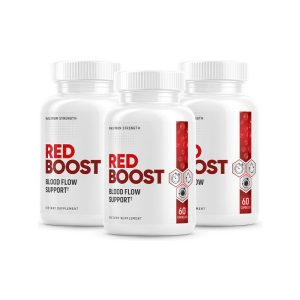The Link Between Prostate Health and Sexual Function: What Every Man Should Know
Table of Contents
Introduction about Understanding the Importance of Blood Sugar Management
As a woman, it’s important to take charge of your health, and one significant way to achieve this is through blood sugar management. Proper blood sugar management ensures that you maintain the right amount of glucose in your bloodstream, which will translate to better health and overall wellbeing. In this blog post, we’ll delve into foods that help with blood sugar control, including whole grains, fiber, protein, good fats, and superfoods. We’ll also discuss processed foods, refined carbs, alcohol, and the importance of portion control in blood sugar management.
Foods to Eat for Better Blood Sugar Control: Whole Grains and Fiber
Whole grains and fiber are great options when it comes to blood sugar regulation. They contain complex carbohydrates that take longer to digest, gradually releasing glucose into the bloodstream, reducing the risk of spikes in glucose levels. Whole grains like brown rice, quinoa, and whole wheat contain higher amounts of fiber compared to refined grains, and they make excellent substitutes in your meals. Additionally, foods like beans, lentils, fruits, and non-starchy vegetables are good sources of fiber and can help maintain healthy blood sugar levels.
The Power of Protein in Blood Sugar Management: Lean Meat and Plant-Based Sources
Protein is known to be an essential nutrient for healthy blood sugar levels. It helps reduce the rate of digestion, which means that glucose is released gradually into the bloodstream, keeping sugar spikes at bay. Lean meats like chicken, fish, and seafood make excellent protein sources, while plant-based options like tofu, beans, and lentils are ideal for a vegetarian or vegan diet. Make sure to incorporate protein in every meal to help regulate blood sugar levels efficiently.
The Benefits of Good Fats: Omega-3 Fatty Acids and Monounsaturated Fats
Good fats play a unique role in blood sugar control. Fats like omega-3 fatty acids and monounsaturated fats improve insulin sensitivity, reduce inflammation, and lower the risk of heart diseases. Foods like salmon, tuna, avocados, nuts, and olive oil are excellent fat sources and should be included in your diet. Incorporating good fats in your diet will help you achieve balanced blood sugar levels, leading to overall better health.
Superfoods for Blood Sugar Management: Berries, Nuts, and Seeds
Superfoods like berries, nuts, and seeds contain nutrients that help maintain healthy blood sugar levels. Berries like blueberries, raspberries, and strawberries contain anthocyanins that help control glucose levels, while nuts like almonds, walnuts, and pistachios have healthy fats, fiber, and protein. Additionally, seeds like chia, hemp, and flaxseeds are perfect sources of omega-3 fatty acids, fiber, and protein. Kombucha, a fermented tea drink, is another superfood that helps maintain healthy gut bacteria and lowers blood sugar levels. Incorporating superfoods in your diet will help maintain and regulate blood sugar levels.
Foods to Avoid for Blood Sugar Management: Refined Carbohydrates and Sugars
Foods high in refined carbohydrates and sugars are known to spike blood sugar levels, worsening your glucose control. Sugary drinks, cakes, cookies, and candies are some of the culprits that make it difficult to control blood sugar levels. Foods containing white flour, such as white bread, pasta, and rice, also have the same effect. Limiting these high-glycemic index foods will significantly reduce the risk of developing insulin resistance and type 2 diabetes.
The Dangers of Processed Foods and Trans Fats for Blood Sugar Control
Processed foods and trans fats are notorious for contributing to several health issues, including blood sugar dysregulation. These foods are usually high in unhealthy fats, salt, and sugar, chemicals that may be detrimental to your overall well-being. Trans fats, often found in margarine, fried foods, and baked products, interfere with insulin regulation and increase inflammation, leading to insulin resistance. Limiting the intake of processed foods will help you maintain healthy blood sugar levels.
The Impact of Alcohol on Blood Sugar Levels: Moderation is Key
Moderation is essential when it comes to alcohol consumption and blood sugar control. Alcohol, particularly in large amounts, can lead to blood sugar spikes, interfering with glucose regulation. But moderate alcohol intake can help improve insulin sensitivity, leading to better glucose control. It’s recommended that women consume no more than one alcoholic drink per day to maintain a healthy blood sugar balance.
The Importance of Portion Control for Blood Sugar Management
Portion control is crucial when it comes to blood sugar management, especially for those battling blood sugar dysregulation. Eating large portions can lead to overconsumption of calories and carbs, causing a spike in blood sugar levels. A good tip is to use smaller plates, eat slowly, and listen to your body. Portion control will help reduce the risk of spikes or drops in glucose levels while ensuring the right amount of nutrients for your body.
Conclusion
Incorporating the right foods into your diet can have a significant positive effect on blood sugar management, increasing the quality of life. Foods like whole grains, fiber, protein, good fats, and superfoods can significantly help regulate blood sugar levels. At the same time, refined carbs and sugars, processed foods, and large portions may worsen blood sugar dysregulation. Strive to maintain healthy nutrional choices and portion control, and always consult your doctor to help manage your blood sugar levels optimally.









